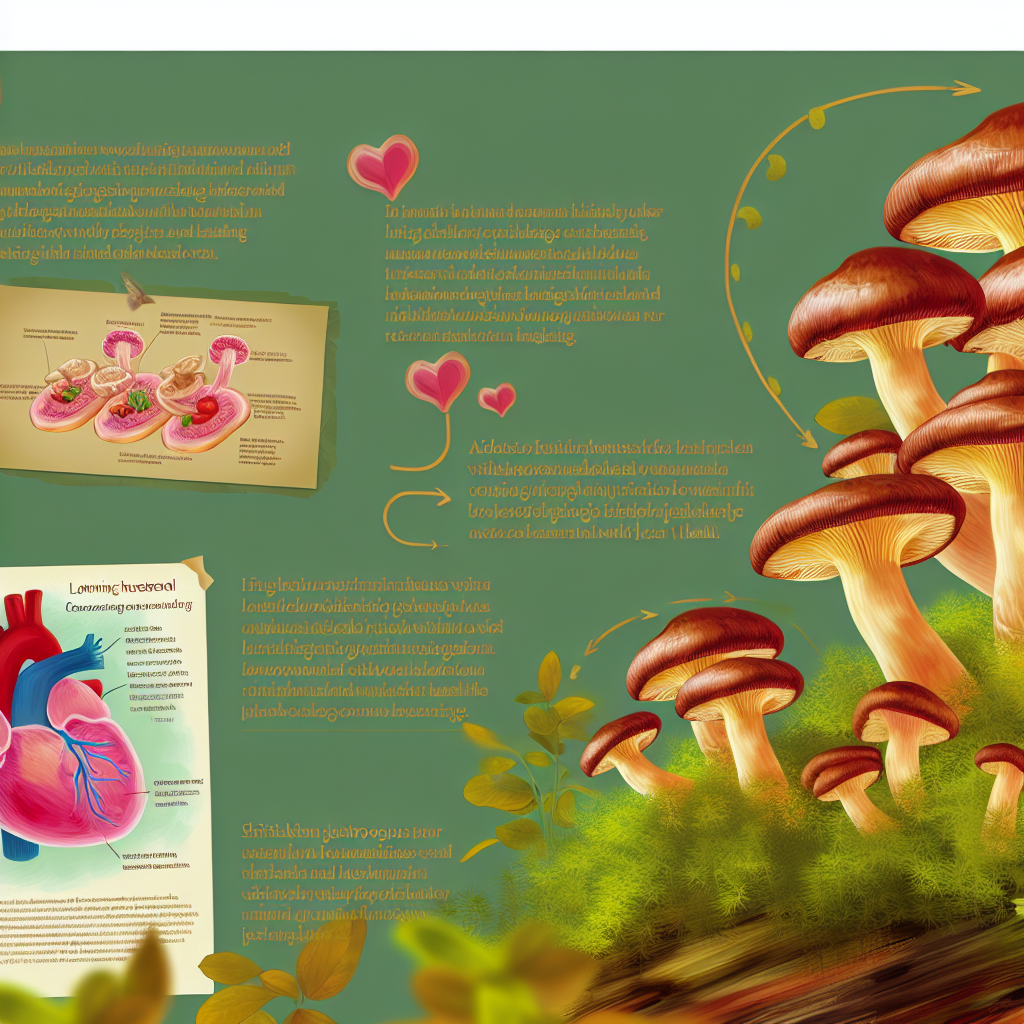Shiitake Mushroom Benefits: Heart Health and Cholesterol Research
Introduction: Nature’s Fungi Frontier—Shiitake Mushrooms and Heart Wellness
As the wellness world continues to merge food with medicine, few ingredients have captured consumer interest like the shiitake mushroom (*Lentinula edodes*). Prized for both its rich, savory flavor and its centuries-long history in traditional Eastern medicine, shiitake mushrooms are stepping into the scientific limelight for their promising health benefits—particularly concerning heart health and cholesterol management.
Native to East Asia, shiitake mushrooms have been consumed for over a thousand years, mostly as culinary staples, herbal remedies, and even longevity tonics in Traditional Chinese Medicine (TCM). As dietary trends continue to favor plant-based, functional superfoods, these earthy fungi emerge as a prime example of nature meeting science. A plethora of research now supports what ancient cultures long believed: shiitake mushrooms can contribute significantly to human health, especially cardiovascular well-being.
One of the major concerns in modern medicine is the global prevalence of cardiovascular disease (CVD), the leading cause of death worldwide. Factors such as high LDL cholesterol, elevated triglycerides, hypertension, and systemic inflammation often contribute to the gradual development of heart disease. Lifestyle modifications, including improved diet and natural supplementation, are increasingly recognized as first-line interventions for prevention and management.
This is where shiitake mushrooms come in. Crucial to their health-enhancing effects are their unique constituents—beta-glucans, eritadenine, sterols, and lentinan. Each of these bioactive compounds plays a crucial role in supporting cardiovascular health, either by modulating cholesterol levels, reducing systemic inflammation, or supporting arterial flexibility.
Nutritionally, shiitake mushrooms contain essential vitamins and minerals like B vitamins (B2, B5, and B6), vitamin D (when exposed to sunlight), copper, selenium, and zinc. But it’s their functional abilities, beyond basic nutrition, that make shiitake exceptional candidates for therapeutic use.
Whether you’re a medical professional seeking integrative care strategies or a wellness-conscious consumer exploring natural health boosters, understanding what shiitake mushrooms offer could lead to better heart health and overall wellness outcomes.
Unlocking Fungal Medicine: The Science of Shiitake and the Heart
Recent research has zeroed in on shiitake mushrooms as natural allies in combating high cholesterol and promoting cardiovascular health. The most studied compound in this mushroom is — eritadenine, a unique alkaloid that has shown significant potential in lowering serum cholesterol levels.
A study published in the journal *Experimental and Toxicologic Pathology* ([Sugiyama et al., 2010](https://www.sciencedirect.com/science/article/abs/pii/S0940299310000431)) found that eritadenine significantly reduced plasma cholesterol levels in rats fed a high-fat diet. The researchers observed that the compound influenced phospholipid metabolism in the liver, leading to more efficient cholesterol excretion.
Another clinical review in the *Journal of Nutrition* highlights beta-glucans, a form of soluble dietary fiber found in shiitake mushrooms. Beta-glucans are known to reinforce the immune response and bind to bile acids in the gut, which can reduce cholesterol absorption in the intestines and lower blood LDL cholesterol levels. These same beta-glucans are also found in oats and barley, long accepted as heart-healthy foods.
Moreover, shiitake mushrooms contain plant sterols that mimic cholesterol structurally. These naturally occurring substances compete with LDL cholesterol for absorption pathways, effectively lowering the amount of harmful cholesterol entering the bloodstream.
Fighting Inflammation Naturally: The Cardiovascular Perks of Lentinan
Additionally, lentinan—a highly studied polysaccharide in shiitake mushrooms—may contribute indirectly to cardiovascular health. Famous for its immune-regulating and anti-cancer properties, lentinan also helps curb systemic inflammation—a key driver of arterial stiffness and plaque formation. By reducing inflammation, lentinan supports the integrity and function of the vascular system.
In a study published in *Nutrition Research*, scientists discovered that adding shiitake to high-cholesterol diets resulted in marked improvements in triglyceride and VLDL-C levels. These findings suggest that regular inclusion of shiitake mushrooms in the diet may offer long-term benefits for heart and circulatory health.
Clinical Proof: Shiitake in Human Studies
A randomized, double-blind clinical trial conducted by Tohoku University in Japan revealed that individuals who consumed shiitake mushroom powder daily experienced modest yet statistically significant improvements in serum cholesterol after just eight weeks. Importantly, no major side effects were reported—making shiitake a safe complementary option in cholesterol-lowering strategies.
This accumulating body of research highlights the therapeutic promise of shiitake mushrooms. As compared to synthetic statins, which may bring a range of side effects, shiitake provides a gentle, food-based solution that can support heart function over time.
Conclusion: A Natural Ally for Heart Health
As science continues to validate the time-tested wisdom of traditional remedies, shiitake mushrooms emerge as potent functional foods with substantiated heart health benefits. Their combination of beta-glucans, eritadenine, plant sterols, and lentinan offers a multi-faceted approach to reducing cholesterol and protecting the cardiovascular system.
Whether integrated into daily meals or consumed as a supplemental powder, shiitake mushrooms represent a powerful, natural ally in the journey toward heart wellness. As with any health strategy, consultation with a healthcare provider is advised for those considering shiitake for therapeutic use.
References
– Sugiyama, K., et al. (2010). “Cholesterol-lowering activity of eritadenine from edible mushrooms Lentinus edodes.” *Experimental and Toxicologic Pathology*. [Link](https://www.sciencedirect.com/science/article/abs/pii/S0940299310000431)
– Jeong, S. C., et al. (2010). “Effects of dietary supplementation of mushrooms on serum lipids.” *Nutrition Research*. [Link](https://www.sciencedirect.com/science/article/abs/pii/S027153171000118X)
– Kalac, P. (2013). “A review of chemical composition and nutritional value of wild-growing and cultivated mushrooms.” *Journal of the Science of Food and Agriculture*. [Link](https://onlinelibrary.wiley.com/doi/abs/10.1002/jsfa.5960)
– National Library of Medicine – Beta-Glucans and Cardiovascular Health. [Link](https://pubmed.ncbi.nlm.nih.gov/16988125/)
– Tohoku University Clinical Study Report Summary. [Link](https://www.tohoku.ac.jp/en/)
Concise Summary:
Shiitake mushrooms are a promising natural solution for heart health and cholesterol management. Their unique bioactive compounds, including eritadenine, beta-glucans, plant sterols, and lentinan, have been shown to lower cholesterol, reduce inflammation, and support overall cardiovascular function. With a growing body of clinical research to back their therapeutic benefits, shiitake mushrooms emerge as a safe, food-based approach to promoting heart wellness.




